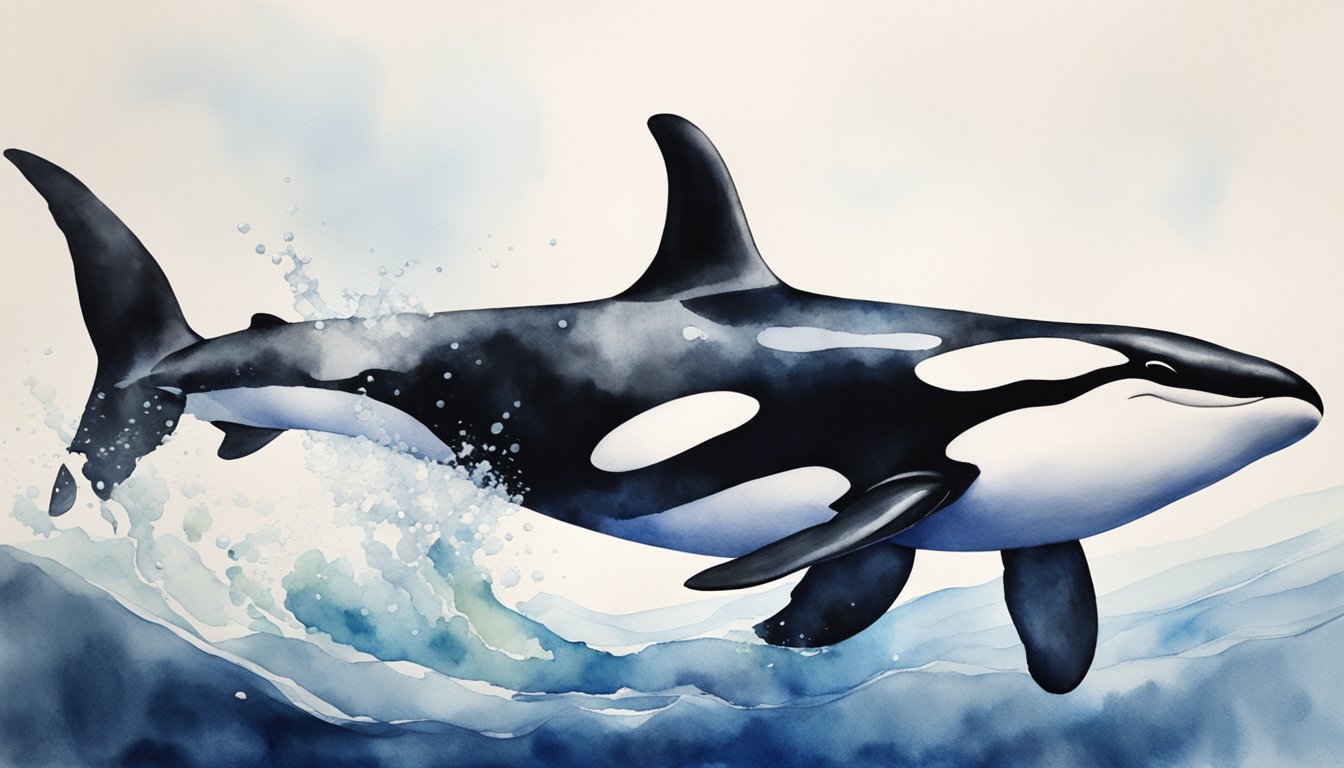Predatory Behavior of Orcas
Orcas, often referred to as killer whales, exhibit intriguing hunting strategies that reflect their position as one of the ocean’s most formidable apex predators. They are particularly notorious for targeting the energy-rich livers of sharks, a tactic that displays their intelligence and the complexity of their hunting behaviors.
Targeting Shark Liver
Killer whales have developed a peculiar taste for shark livers, a part of their prey that is abundant in nutrients and energy. This specific predilection can be linked to the liver’s high oil content, which contributes to buoyancy—a valuable trait for both the shark and the predator that consumes it. Evidence of such predatory behavior has been supported by sightings and scientific reports, highlighting the strategic nature of orcas when choosing their food in the marine food chain.
Strategic Hunting Techniques
The hunting techniques of orcas are not only unique but also highly strategic, leveraging their collective intelligence. Observations suggest that they may use coordinated attacks to isolate and incapacitate their prey—often sharks—before homing in on the liver. This organ provides a concentrated source of nutrition, making the effort worthwhile. Footage and reports from marine biologists provide compelling evidence of killer whales employing sophisticated hunting behavior to extract and consume shark livers, bypassing other tissues.
Apex Predators in Action
As apex predators, orcas sit atop the food chain, and their interactions with other predators, like sharks, have a profound impact on the marine ecosystem. The capability to prey upon species such as the formidable great white shark further accentuates their role as top predators. Investigations and anecdotal accounts provide a glimpse into the might and finesse with which these creatures command their environment, demonstrating a level of supremacy only seen in the most effective of marine hunters.
Ecological Impacts of Orcas Eating Shark Liver

The predation of orcas on sharks, particularly targeting the liver, poses significant ecological consequences. Orcas, also known as killer whales, have been observed employing highly specialized hunting techniques to feast on the nutrient-rich livers of sharks. This behavior not only affects shark populations but also has broader implications for the marine ecosystem.
Effects on Shark Populations
Orcas have been reported to prey on various shark species, including great white sharks and sevengill sharks, often leaving the rest of the shark carcass behind. This behavior can lead to the decline of local shark populations, as orcas can effectively remove healthy adult sharks from the gene pool. For example, in areas like South Africa and parts of California, scientists have noticed shifts in the presence of white sharks, attributed in part to orca predation. Notably, marine biologists have identified two orcas, nicknamed Port and Starboard, who exhibit a particular penchant for shark livers.
Influence on Marine Ecosystem
The removal of sharks from the ecosystem by orcas can create a ripple effect, influencing the distribution and behavior of other species. For example, the decrease in great white shark movements around seal colonies, due to orca presence, significantly affects the dynamics of the food chain. Moreover, it challenges the role of sharks as apex predators, with orcas potentially stepping into that ecological niche. Conservation efforts have to consider these interactions, as they reflect the complexity and interconnectedness of marine life, including how the loss of a single predator can have far-reaching impacts.
Cultural and Biological Understanding of Orca Predation

Orcas, majestic and sophisticated predators, have a unique approach to hunting that is shaped by both biological adaptations and the transmission of cultural behaviors.
Orcas’ Adaptation and Learning
Killer whales, or orcas, have evolved impressive methods for getting the most nutritious parts of their prey with minimal effort. One such method is the predation on shark livers, which are high in vitamins and energy. Marine biologists have observed orcas in different regions exhibiting this behavior, which involves flipping the shark upside down to induce a state of paralysis known as tonic immobility. Then, they extract and consume the liver with almost surgical precision. Through necropsies on sevengill sharks and other species, scientists have noted the almost surgical precision with which orcas remove the livers.
The Role of Culture in Hunting
Just like human cultures pass down traditions, orcas have their own cultural practices related to hunting. These traditions vary widely between different orca subgroups and are learned behaviors shared within a community. Alison Kock, a marine biologist studying orcas in False Bay, South Africa, found that the local orcas were teaching each other to hunt cape fur seals. This ability to teach and learn complex hunting strategies is evidence of the cultural component within the animal kingdom, as it reflects shared knowledge and techniques that go beyond instinctual behavior.

